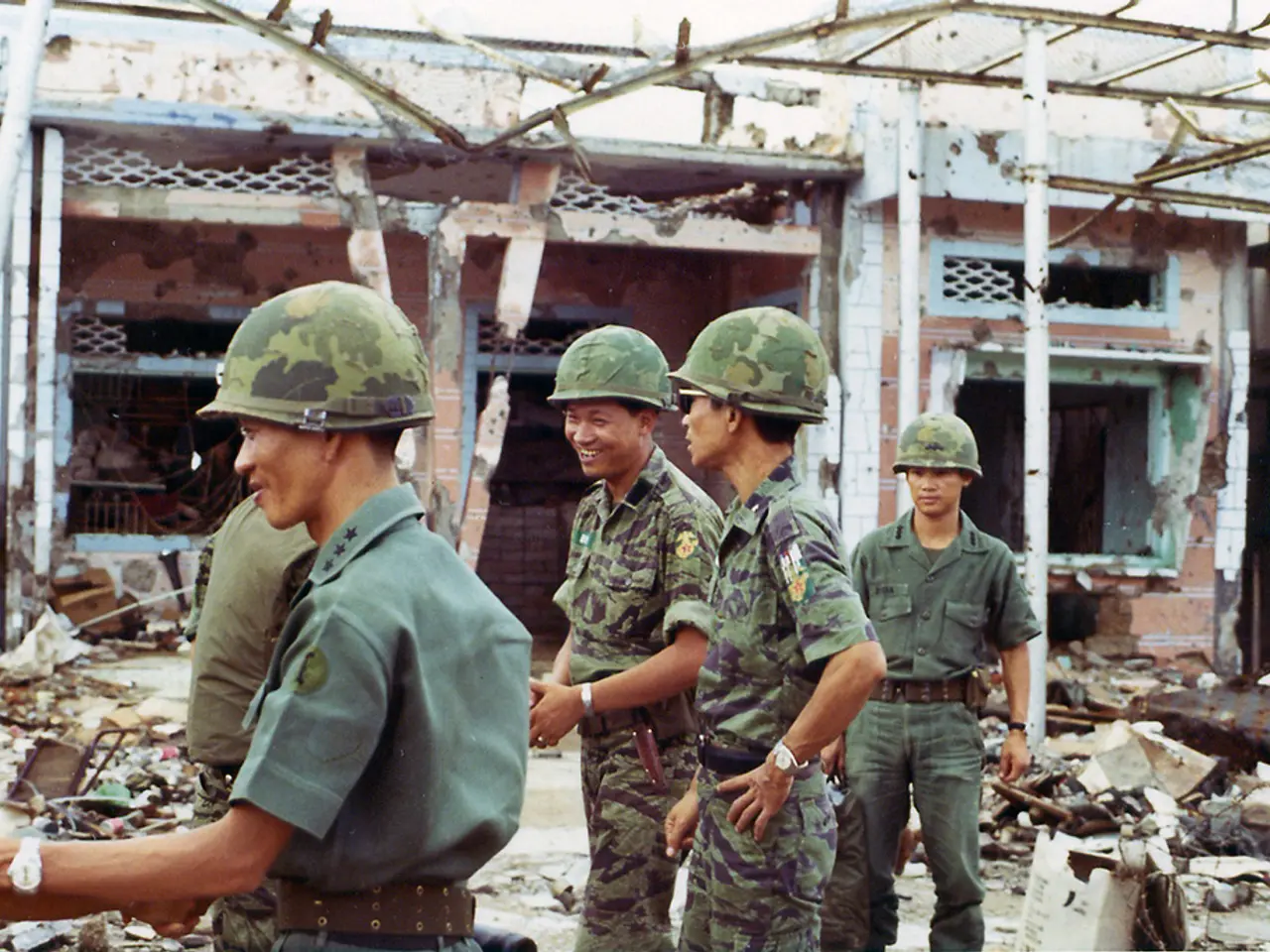Jammu and Kashmir: Operation Akal Canceled After 12 Days; No Terrorist Evidence Discovered
In the heart of the Kashmir Valley, Operation Akal, one of the longest-running counter-terrorism operations in 2025, has been underway for over 10 days in the dense forests of Kulgam district. This joint operation involving the Indian Army, police, and Central Reserve Police Forces aims to flush out terrorists entrenched in a rugged and heavily forested terrain.
So far, the operation has resulted in the killing of three terrorists and the recovery of one body, identified as Haris Nazir Dar, affiliated with Lashkar-e-Taiba. However, at least five more trained terrorists have managed to escape, making the operation ongoing with search efforts for additional militants.
The primary reasons for the operation's prolonged duration and incomplete neutralization of all terrorists include the dense, difficult terrain, heavy foliage, low visibility due to recent heavy rains, well-prepared militant hideouts, and the operational priority to minimize own casualties. The Kulgam area's thick forests, caves, boulders, and uneven terrain make locating and engaging terrorists challenging. The terrorists are deeply entrenched in forest hideouts, requiring careful, prolonged clearance to avoid casualties on the security forces' side.
Additional assets such as helicopters, drones, sniffer dogs, para commandos, and high-tech surveillance equipment like thermal imaging equipment have been deployed to aid surveillance and encirclement. Despite these resources, the elusive militants have managed partial evasion, contributing to the operation's extended duration.
The operation, launched on August 1 based on intelligence inputs about the presence of terrorists in the Akal forest area, has been a challenging endeavour. The dense forest and challenging terrain provided natural shelters for the holed-up terrorists, complicating the search operation. The prolonged operation led to fatigue and increased exposure among the troops, with a total of 11 security personnel injured during the entire operation, of which two are in critical condition, according to some sources.
Two Army personnel, Lance Naik Pritpal Singh and Sepoy Harminder Singh, were martyred, and 11 soldiers were injured, some of them critically. Intermittent firing took place during the operation on August 2 and 3, resulting in the reported death of three more militants, taking the total number to five.
As the operation reaches its twelfth day, it has been called off, raising questions about its effectiveness. The operation ended without recovering any more terrorist bodies, and the remaining terrorists are believed to be Pakistani nationals. The operation shifted to a "search and expel" phase after security forces cleared the encounter site, but no trace of the terrorists was found after extensive searches.
Operation Akal is part of a massive crackdown on terrorist networks following the Pahalgam terror attack on April 22, 2025. Despite the resources and determination of the security forces, the terrorists, being trained in jungle warfare, posed major challenges. The operation serves as a reminder of the complexities and challenges involved in combating terrorism in such difficult terrains.
- The ongoing Operation Akal in the Kashmir Valley, despite being primarily focused on counter-terrorism, has also been driven by politics and general news, with its duration, casualties, and results widely reported and scrutinized in the media.
- Beyond war-and-conflicts, Operation Akal has also highlighted the prevalence of crime-and-justice issues, as the elusive militants involved in the operation have evaded capture, causingconcerns about the effectiveness of the operation and the safety of the region's citizens.








